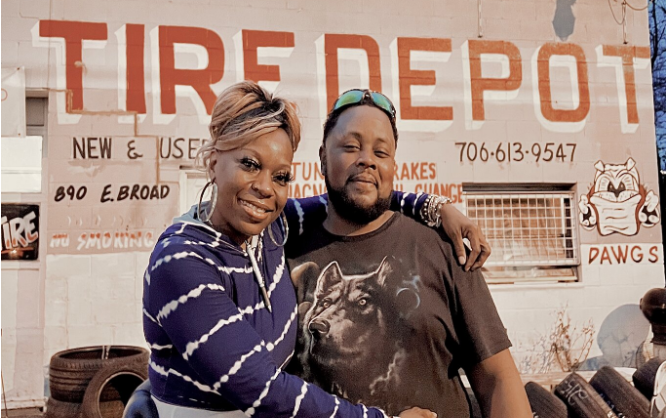
On a warm spring evening, Lashanna Mattox paces back and forth on Pottery Street. She stares up at the newest parking deck for The Mark, which towers over the small business she and her husband, Terrell Mattox, own. Mrs. Mattox is the front desk coordinator and co-owner of the Potterytown-based Tire Depot. Their family-owned small business is community focused: “We get customers and they don’t have enough money — but guess what, we look out for them.”
There are less than a dozen houses left in the Potterytown neighborhood, a dynamic community of Black families and businesses. In the heart of what was once a sea of mills and factories, this lesser-known Athens neighborhood sat alongside more prominent historically Black communities surrounding Downtown Athens, such as The Bottoms, Lickskillet, and The Waterfront.
Why It’s Newsworthy: Investors and redevelopers are moving into the Potterytown to build profitable student housing — forcing longtime residents of the historically Black community to move out. Lashanna and Terrell Mattox are working to keep their small business alive despite pressures to sell their land.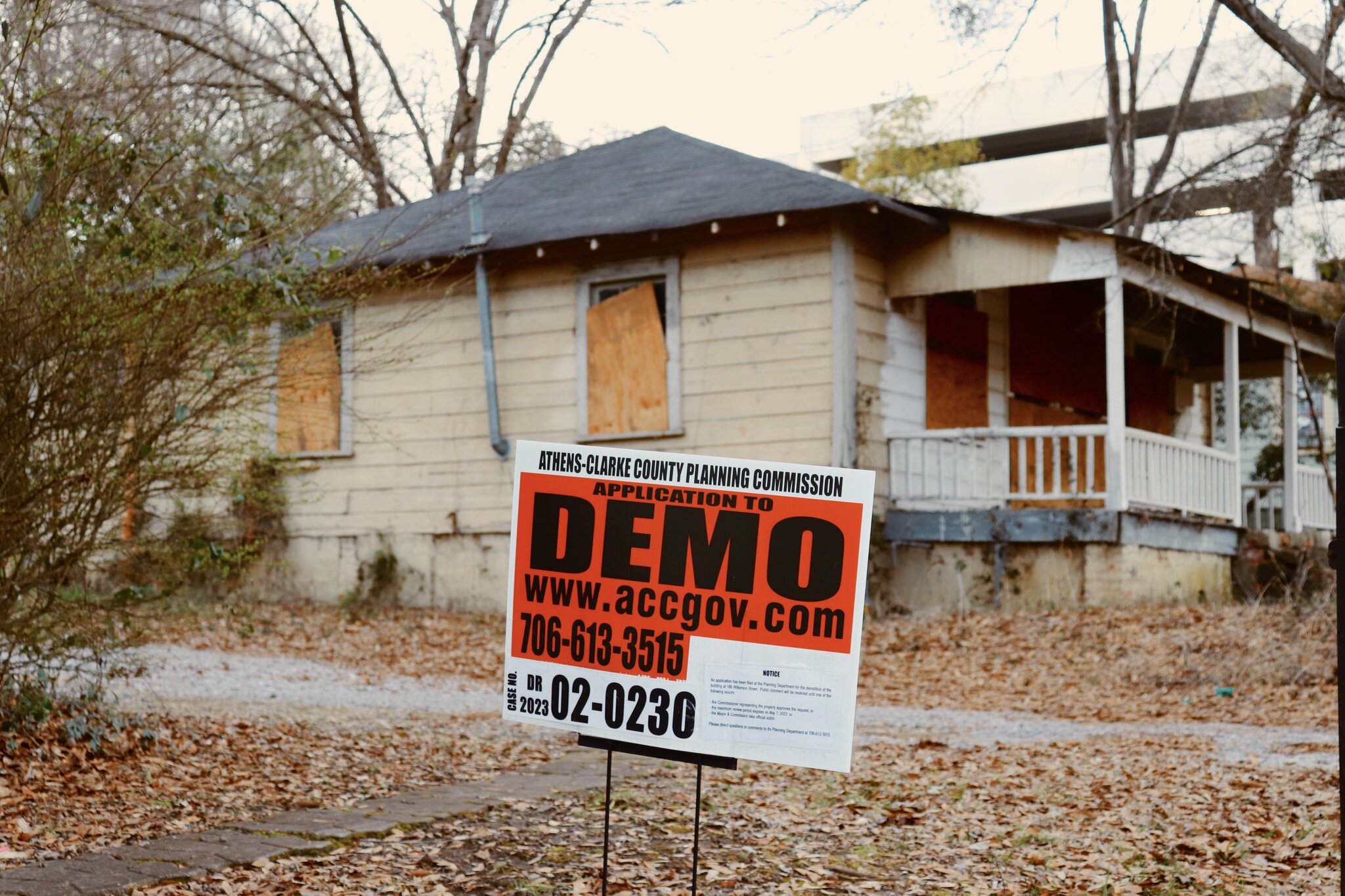
Mrs. Mattox sighs, “They are doing so much around Athens to the point where if you lived in Athens five years ago and come back today, you will be confused on where to go, which way to turn.” She expects redevelopers to destroy the remaining Potterytown neighborhood properties and homes.
Torn Apart at The Seams
While most of the historically Black areas in Athens were demolished through the Housing and Urban Development Act of 1965, the fluorescent-colored Weaver D’s and Mr. Gillepsie’s Tire Depot are a few of the only structures remaining from the once lively residential collective.
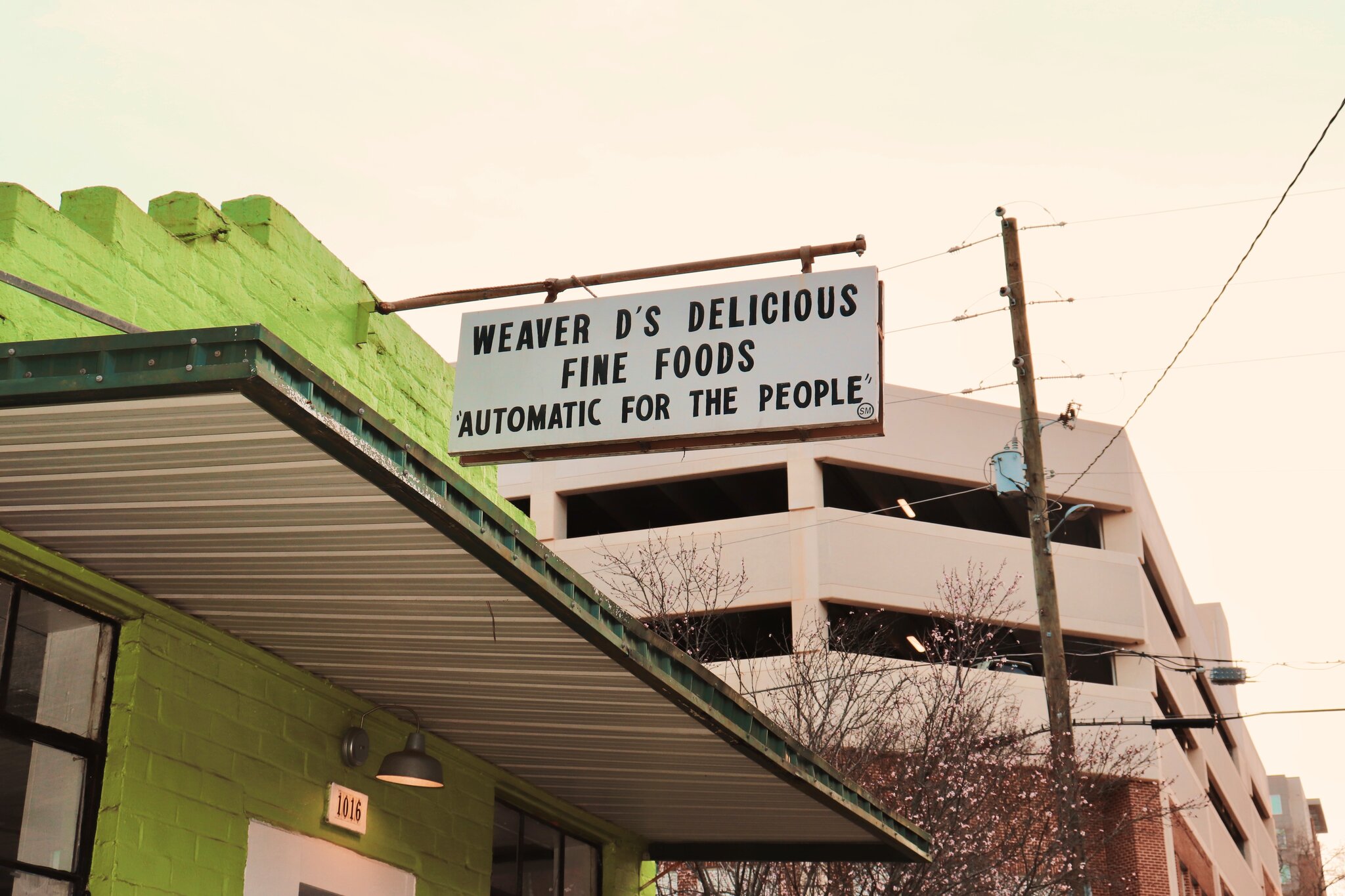
Cindy Hahamovitch, a history professor at the University of Georgia, has expertise in Southern, immigration and labor history. When asked about how families have been affected by the historical implications of urban development projects she said, “The whole way housing was racially rigged just means the consequences had to have been much greater for Black families.”
When looking back before the changes of the late 1900s, Athens was industrially and culturally revolutionized throughout the pre- and post-eras of the Civil War. The areas lining the North Oconee River were settled by formerly enslaved people during the period of Reconstruction. Potterytown is a physical reminder of the diverse Black communities that once populated the foothills of the Athens piedmont.
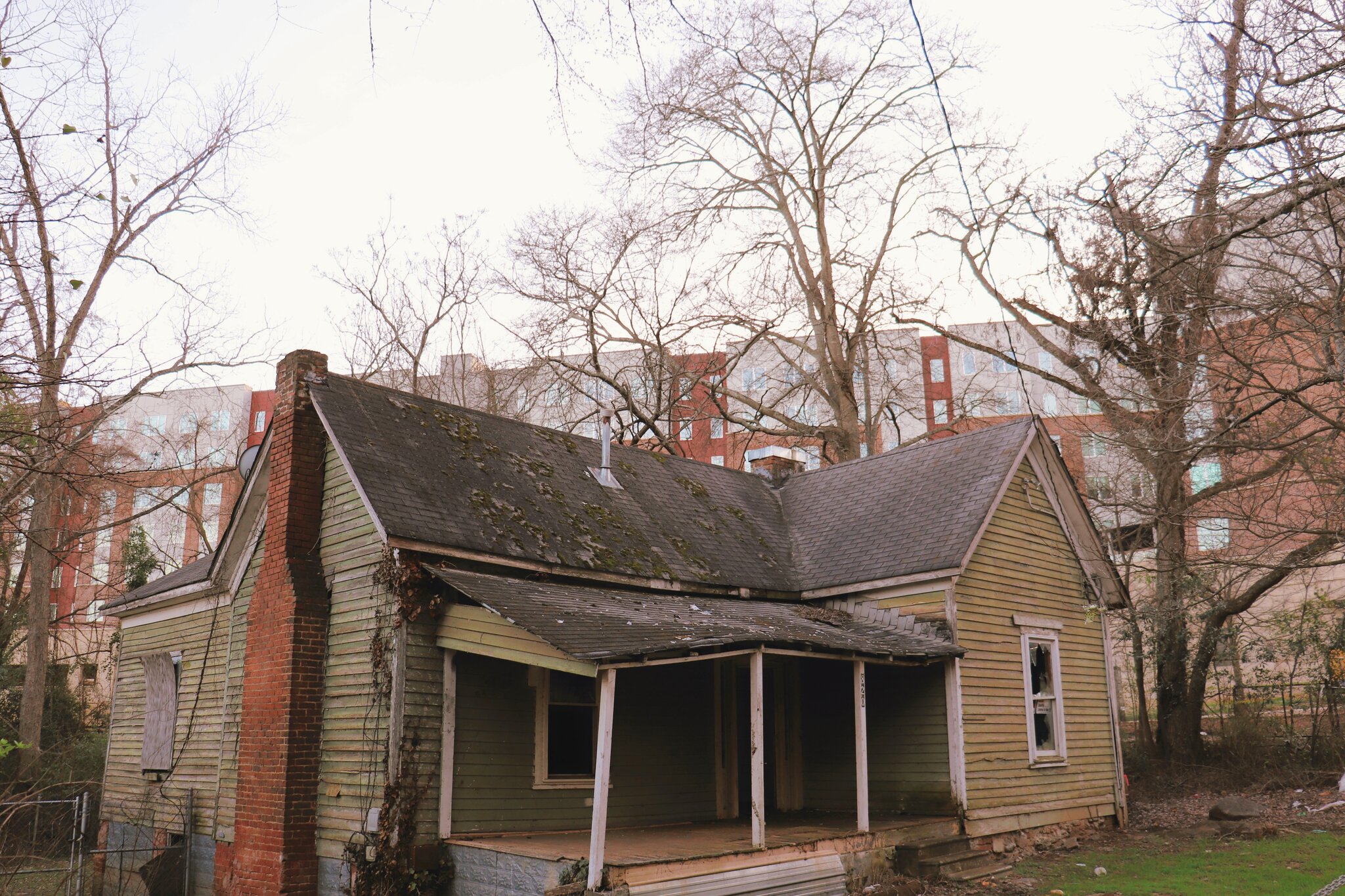
In the past decade, Potterytown lots have fallen into the hands of the Landmark Properties, which oversees the luxury student housing community, The Mark. The massive facility for The Mark opened in 2017 and has become a popular rental space for more than 1,400 UGA students. Landmark continues to privately purchase individual properties and is now continuing its Phase II development.
Hahamovitch believes there is a rich, underlying cultural and social history of the land that could be lost through the continued development of these new, modern complexes.
“This neighborhood doesn’t just move over here, right? It gets sort of broken up,” Hahamovitch said. “And people end up in different places…there’s things that are kind of incalculable that might have also sort of hurt those communities that are really hard to measure.”
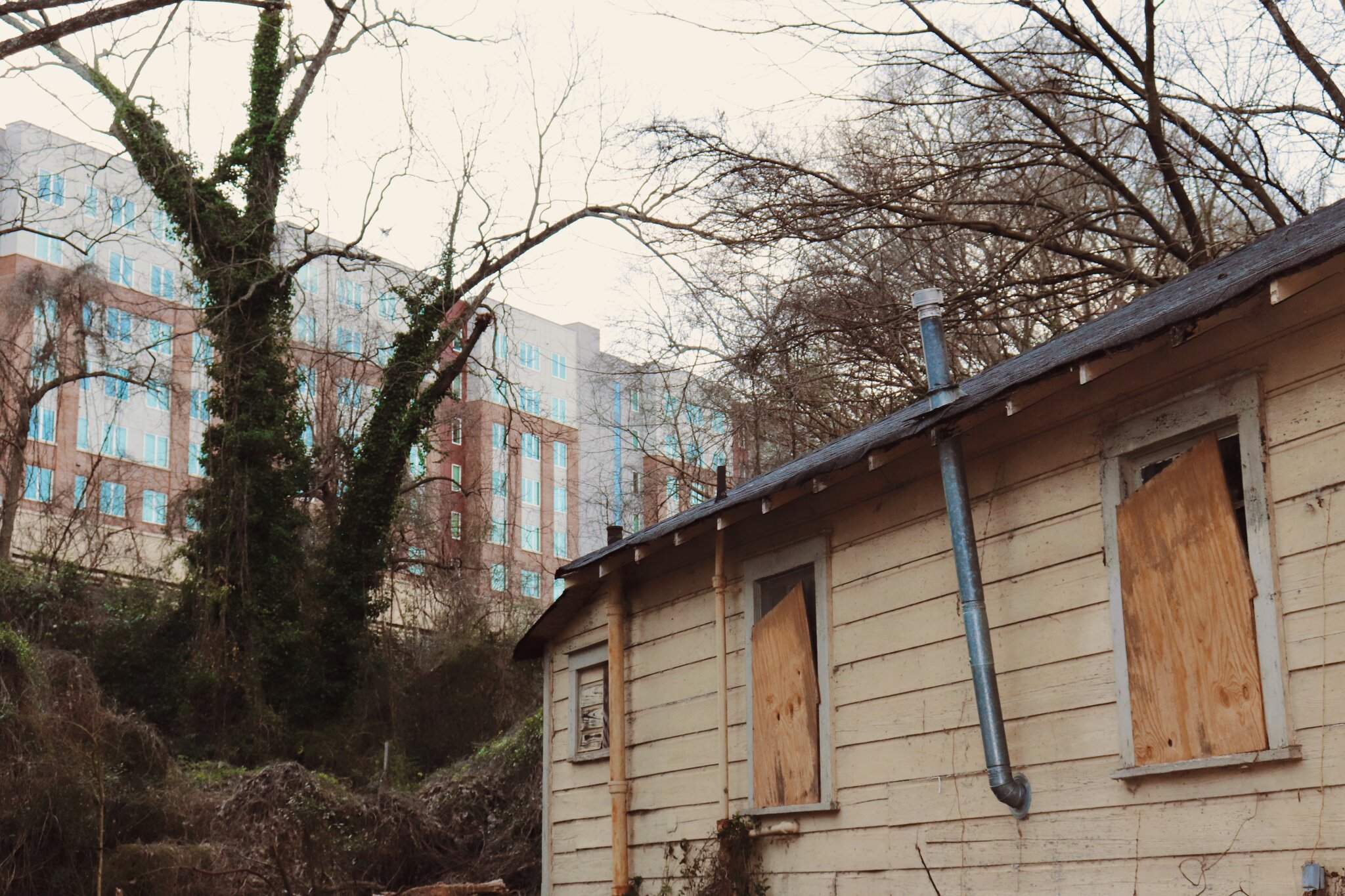
Do Dollars Make Sense?
Terrell Mattox — business owner and head mechanic of the Tire Depot — expressed his frustrations with the continuous construction efforts, calling it a “headache.”
“It slowed me down and to be honest with you, it stopped a lot of my business until they ’bout got done with it because they were blocking the roads, people didn’t know if they could turn in or not, so I lost a good little bit of money,” he said.
Mrs. Mattox feels that while they have faced pressures of being bought out by investors, she feels that giving back to her community is a stronger calling: “I pray all the time that our building, this building, we don’t go anywhere. Like, leave us alone, leave us out here [to work] for the students.”
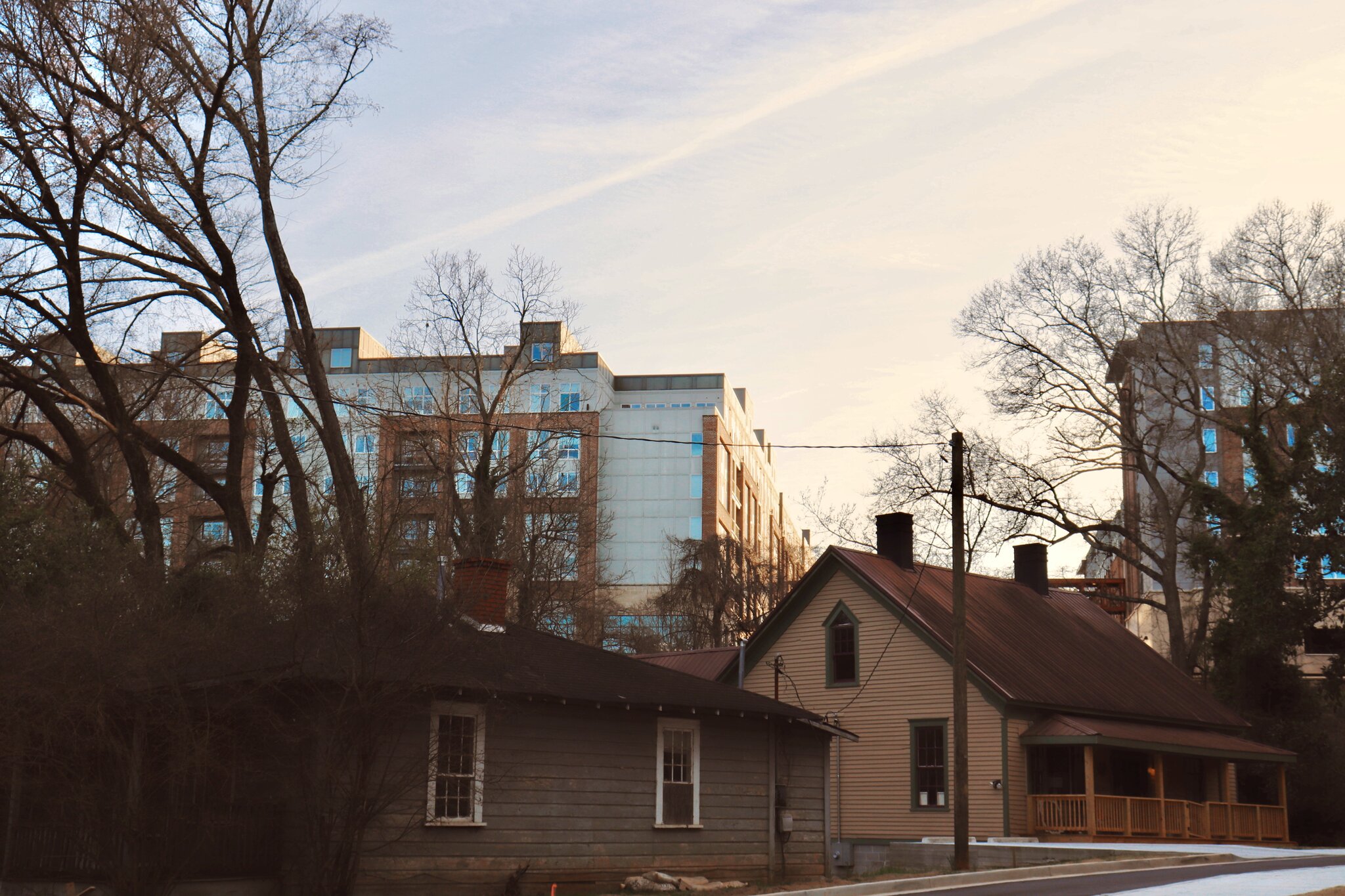
Bella Dora, a senior at the University of Georgia, lives up the hill in the Phase I apartments of The Mark.
“I think if they’re going to do that they need to make sure to be respectful, and just kind of keep in mind there were people and things that came before this and before them,” she said.
The Mattox family is one of a few neighboring community residents who feel immense pressure to stay open as businesses continue to close in around them. However, Mr. Mattox says he plans to keep moving forward, ”they ain’t thinking about how I got a business here — y’all working so I gotta make money like y’all do.”
Hannah Crouch is a senior majoring in journalism and minoring in sociology.








Show Comments (0)